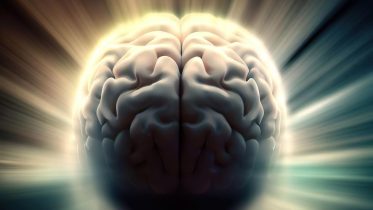Get the latest Science News and Discoveries
Brains Under Stress: Unravelling the Effects of the COVID-19 Pandemic on Brain Ageing
The impact of SARS-CoV-2 and the COVID-19 pandemic on cognitive and mental health is recognised, yet specific effects on brain health remain understudied. We investigated the pandemics impact on brain ageing using longitudinal neuroimaging data from the UK Biobank. Brain age prediction models were trained from hundreds of multi-modal imaging features using a cohort of 15,334 healthy participants. These models were applied to an independent cohort of 1,336 participants with two MRI scans: either both before the pandemic (Controls) or one before and one after the pandemic onset (Pandemic group). Our findings reveal that, even with matched brain age gaps initially, the pandemic significantly accelerated brain ageing. The Pandemic group showed on average 11-month higher deviation of predicted brain age vs. chronological age (brain age gap) at the second time point compared with controls. Accelerated brain ageing was more pronounced in males and those from deprived socio-demographic backgrounds, with average increases of 3.3 and 7 months, respectively. These deviations existed regardless of SARS-CoV-2 infection. However, accelerated brain ageing correlated with reduced cognitive performance only in COVID-infected participants. Our study highlights the pandemics significant impact on brain health, beyond direct infection effects, emphasising the need to consider broader social and health inequalities. ### Competing Interest Statement The authors have declared no competing interest. ### Funding Statement Data were provided by the UK Biobank under Project ID 43822 (PI Sotiropoulos). This study was supported by the NIHR funded Nottingham Biomedical Research Centre and the DEMISTIFI consortium (Medical Research Council grants MR/V005324/1, MR/W014491/1). SNS acknowledges funding from the European Research Council (ERC Consolidator 101000969). The computations described in this paper were performed using the University of Nottingham Ada HPC service and the Precision Imaging Beacon Cluster, which provide High Performance Computing service to the University research community. ### Author Declarations I confirm all relevant ethical guidelines have been followed, and any necessary IRB and/or ethics committee approvals have been obtained. Yes The details of the IRB/oversight body that provided approval or exemption for the research described are given below: We are using the UK Biobank which is an open access dataset I confirm that all necessary patient/participant consent has been obtained and the appropriate institutional forms have been archived, and that any patient/participant/sample identifiers included were not known to anyone (e.g., hospital staff, patients or participants themselves) outside the research group so cannot be used to identify individuals. Yes I understand that all clinical trials and any other prospective interventional studies must be registered with an ICMJE-approved registry, such as ClinicalTrials.gov. I confirm that any such study reported in the manuscript has been registered and the trial registration ID is provided (note: if posting a prospective study registered retrospectively, please provide a statement in the trial ID field explaining why the study was not registered in advance). Yes I have followed all appropriate research reporting guidelines, such as any relevant EQUATOR Network research reporting checklist(s) and other pertinent material, if applicable. Yes Scripts for estimating brain-age using imaging-derived features are available on GitHub https://github.com/SPMIC-UoN/deltab.
None
Or read this on r/EverythingScience

